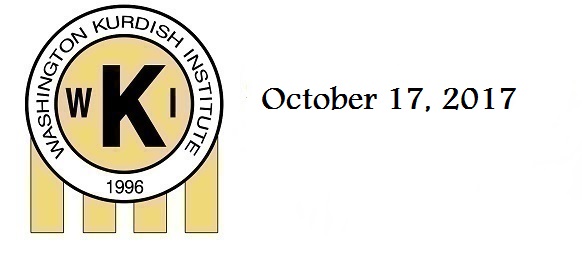965
Iran
- According to the Human Rights Association of Kurdistan (KMMK), between October 2016 and October 2017 there have been 580 prisoners executed by the government of Iran. The report also states that more than 20 percent of the executed prisoners were Kurds.
- Iranian regime border forces shot and wounded several Kurdish border porters (also known as kolbars) in Sardasht (West Azerbaijan Province, Iran). After the shootings, the Iranian border guards detained the kolbars and confiscated their goods.
- Iran shut down its border with Iraqi Kurdistan, at the request of the Iraqi central government. The central government of Iraq and Turkey also instituted retaliatory economic sanctions against the Kurdistan Region of Iraq in response to its holding of an independence referendum on September 25, 2017. This tripartite blockade (Iraq, Iran, and Turkey) continues as a means to pressure the Kurdistan Region of Iraq to nullify the referendum results.
Iraq
- In light of the various political disagreements among political parties in the region, the Independent Electoral Commission in the Kurdistan Region of Iraq announced the suspension of preparation planning for the upcoming Presidential and Parliamentary elections in the region.
- With the recent fall of Kirkuk, the Iraqi army and Pro-Iranian militias (e.g. Popular Mobilization Units [PMUs]) now control both the city and province. A number of reports have surfaced of these forces burning down and destroying homes belonging to Kurdish residents in Tuz district and Kirkuk city. Thousands of Kirkuk citizens fled the area during the central government’s assault — in recent days some residents have begun slowly returning to the city.
Syria
- Roughly four months into the “Wrath of Euphrates” campaign, U.S.-back Syrian Democratic Forces (SDF) have liberated Raqqa from ISIS control. Previous to the liberation, the city had served as the terrorist group’s de facto capital. Talal Salo, a spokesperson for the SDF, told the New York Times that “the military operation is over.” During a briefing at the Pentagon, U.S. Col. Ryan Dillon said “Raqqa is more than 90 percent clear,” adding that “we are aware of the reports that ISIS has been defeated in Raqqa; however, clearance operations continue”. Brett McGurk, the Special Presidential Envoy for the Global Coalition to Counter ISIS at the U.S. State Department, said “ISIS lost nearly 6,000 terrorists in Raqqa.” The SDF also said about 30,000 civilians from the city fled to a safe area. Meanwhile the Deir Ez Zour liberation campaign, “Al Jazeera Tempest,” continues, with the SDF advancing towards the North and Northwest areas of the city to liberate more villages from ISIS control. The Syrian regime, headed by Assad and supported by Russia and Iran, is also attempting to liberate the south and southeast areas of Deir Ez Zour.
Turkey
- In response to the lack of information about imprisoned Kurdish leader Abdullah Ocalan’s health, thousands of Kurds protested the Turkish government, demanding information about Ocalan’s health and security. Ocalan is the founder and head of the Kurdistan Workers’ Party (PKK). Protests also broke out among the Kurdish diaspora in several cities in Germany, the UK, Belgium, Italy, Sweden, Austria, Greece, as well as many other countries. During a press conference in Turkey, officials from the Pro-Kurdish People’s Democratic Party (HDP) said that “we are witnessing another period of increasing concerns regarding the health condition and security of Abdullah Öcalan on Imrali.” Protests are expected to continue. The last time Turkish authorities allowed a family member to visit Ocalan was on September 10, 2016.
- A German court recently released Mehmet Saylan,a Turkish spy who worked for the National Intelligence Agency (MIT) and plotted assassinations against Kurdish politicians in Germany. While Saylan was sentenced by the court to spend 2 years and 6 months in prison, he has now been released on probation. A lawmaker of the German Left Party Ulla Jelpke harshly criticized the court’s decision. She said “this [ruling] shows the incompetence of the German judiciary system”. Recently there have been several cases of MIT activities in Germany attempting to target Turkish and Kurdish opposition figures.
- A group of 24 Parliamentary Assembly of the Council of Europe (PACE) members issued a written statement in the Council of Europe demanding the immediate release of arrested HDP lawmakers in Turkey. The HDP lawmakers have been imprisoned by Turkey’s government, led by the ruling political party the Justice and Development Party (AKP), for over a year. Police within Turkey continue to arrest Kurdish opposition party members in Istanbul, Adana, Antep, Ankara, Shirnak, and Urfa — this includes the arrest of former Parliamentarian Husamettin Zenderlioglu of the HDP.

